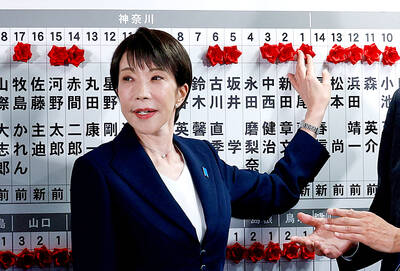
President William Lai (賴清德) on Sunday night congratulated Japanese Prime Minister Sanae Takaichi and her Liberal Democratic Party (LDP) on their historic landslide victory in Japan’s general election earlier in the day.The decisive win “clearly demonstrates the trust and expectations of Japanese vot
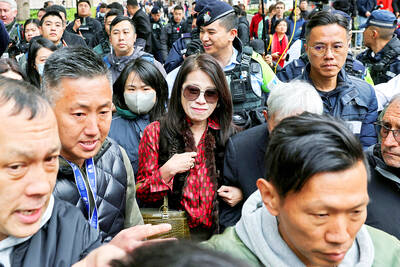
The sentencing yesterday of former Hong Kong media magnate Jimmy Lai (黎智英) raised concerns from international governments, while Chinese and Hong Kong authorities defended it, saying it reflected the spirit of the rule of law.Lai, a 78-year-old prominent democracy advocate, was sentenced to 20 years
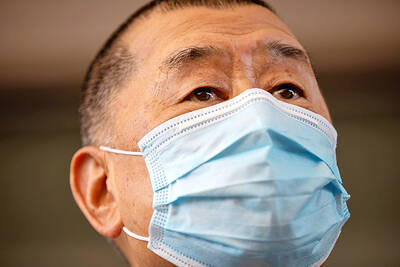
The Mainland Affairs Council (MAC) yesterday “strongly condemned” the “political persecution” by Chinese authorities after Hong Kong media tycoon Jimmy Lai (黎智英) was sentenced to 20 years in prison under Hong Kong’s National Security Law.In a statement, MAC said it “condemns the Chinese Communist Pa

Taiwanese trade negotiators told Washington that Taipei would not relocate 40 percent of its semiconductor production to the US, and that its most advanced technologies would remain in the nation, Vice Premier Cheng Li-chiun (鄭麗君) said on Sunday.“I told the US side very clearly — that’s impossible,”
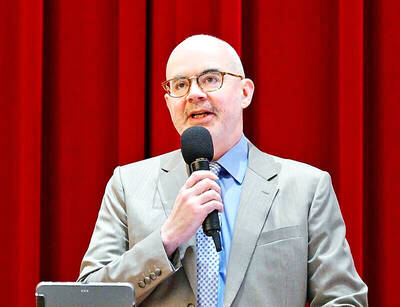
US ENVOY? A KMT vice chair said he meant no disrespect when he said Greene’s position was ‘only slightly higher than that of a section chief’
The director of the American Institute in Taiwan (AIT) is the US secretary of state’s representative in Taiwan who fully represents the US government’s position, a US Department of State spokesperson said on Saturday following controversial remarks by a Chinese Nationalist Party (KMT) official. KMT
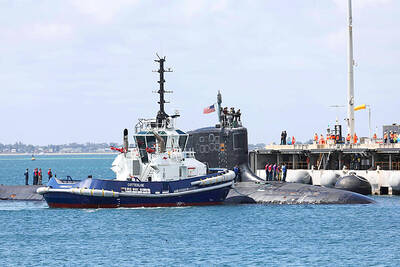
DETERRENCE EFFORTS: Washington and partners hope demonstrations of force would convince Beijing that military action against Taiwan would carry high costs
The US is considering using HMAS Stirling in Western Australia as a forward base to strengthen its naval posture in a potential conflict with China, particularly over Taiwan, the Wall Street Journal reported on Saturday. As part of its Indo-Pacific strategy, Washington plans to deploy up to four nuc
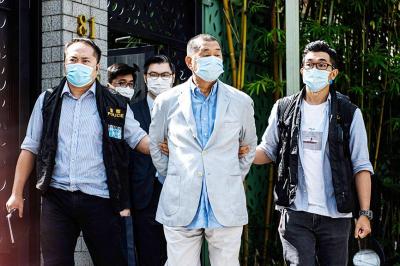
Hong Kong media tycoon Jimmy Lai (黎智英) was sentenced today to a total of 20 years in jail on three charges comprising two counts of conspiracy to collude with foreign forces and one count of publishing seditious materials.The Mainland Affairs Council condemned the "harsh" sentence and called for Lai
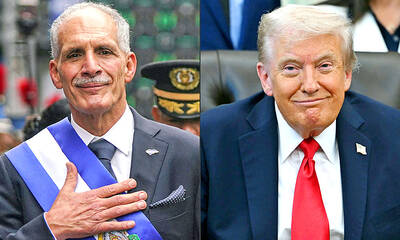
DIPLOMACY: During Honduras’ presidential election last year, Nasry Asfura had expressed his intention to restore relations with Taiwan
Honduran President Nasry Asfura on Saturday said he is considering switching diplomatic ties to Taiwan from China. Asfura was quoted as making the remarks after his meeting with US President Donald Trump at the latter’s Mar-a-Lago resort in Florida. Asfura, a conservative businessman and former mayo
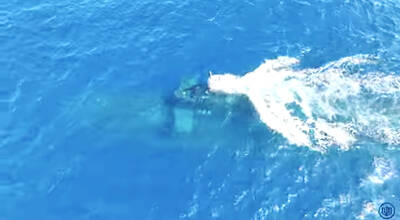
CSBC Corp, Taiwan (台灣國際造船) yesterday released the first video documenting the submerged sea trials of Taiwan’s indigenous defense submarine prototype, the Hai Kun (海鯤), or Narwhal, showing underwater navigation and the launch of countermeasures.The footage shows the vessel’s first dive, steering and
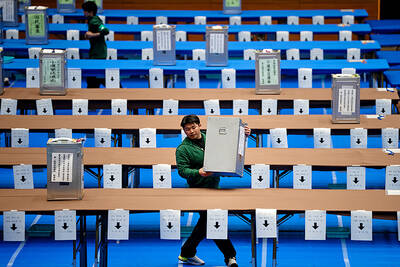
Japanese Prime Minister Sanae Takaichi’s ruling coalition won a super-majority of at least two-thirds of the seats in yesterday’s snap lower house elections, national broadcaster NHK projected. Takaichi’s ruling bloc capitalized on her honeymoon start as Japan’s first female prime minister. If confi
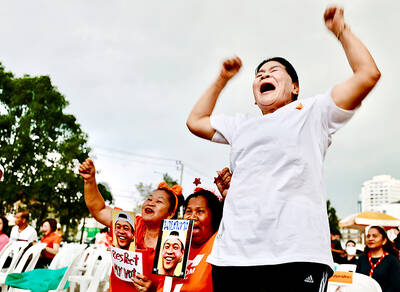
Vote counting was under way last night in Thailand’s early general election, seen as a three-way race among competing visions of progressive, populist and old-fashioned patronage politics. The battle for support from 53 million registered voters came against a backdrop of slow economic growth and he
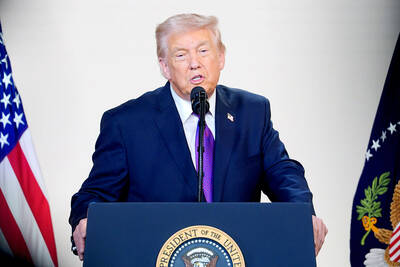
SHRINKING WINDOW: If Taiwan continues to stall the passage of its defense budget, the US might redirect arms sales to other, more proactive countries, an expert said
US President Donald Trump has signed an executive order for the customer list of US weapons that would prioritize countries with higher defense spending and strategic importance, the White House said on Friday.The order establishing the “America First Arms Transfer Strategy” marks a significant shif
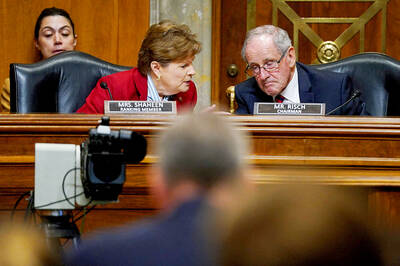
STANDING FIRM: The KMT said it supports a reasonable defense budget and that it would promptly review the budget once money is allocated for soldiers’ salary raises
Bipartisan US lawmakers have once again criticized and expressed disappointment that Taiwan’s efforts to enhance its self-defense capabilities are being hindered.US senators Jim Risch and Jeanne Shaheen, chairman and ranking member of the US Senate Committee on Foreign Relations respectively, releas
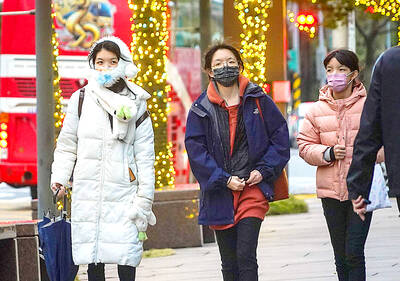
In response to extreme weather conditions, the Ministry of Environment and the Ministry of Health and Welfare are collaborating on an action plan, making “cold-weather adaptation” a key component, the environment ministry said yesterday.People have adapted to warm winters, as temperatures have climb

Greek authorities on Friday formally detained a senior air force officer accused of spying, his lawyer said, while another source and the media said the intelligence was given to China. The 54-year-old officer — who was not named, but was serving in a unit in the Athens region — appeared before mili
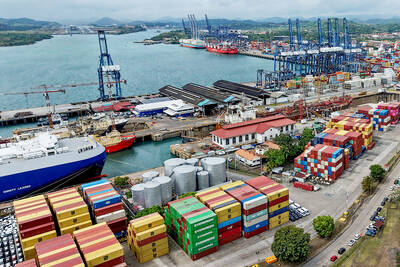
Hong Kong’s commerce chief on Friday summoned the Panamanian Consul General to condemn a court ruling that annulled Hong Kong-based CK Hutchison’s contract to operate two ports at the Panama Canal.The move came after China’s Hong Kong and Macau Affairs Office earlier this week warned Panama of “heav
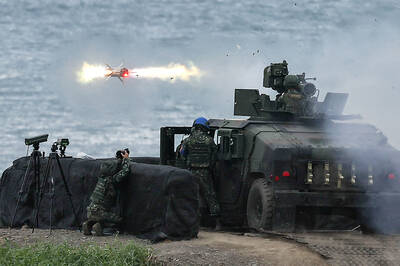
STANDOFF: Wellington Koo urged the legislature to approve the budget, as the first installment must be paid by March, but the KMT said it would not sign ‘blank checks’
Taiwan is to seek an extension to the date by which an agreement must be signed with the US for a batch of weapons deliveries, given the ongoing standoff in the legislature about defense spending, the Ministry of National Defense (MND) said yesterday.President William Lai (賴清德) last year proposed a
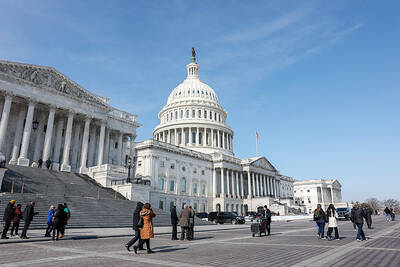
The partisan standoff over President William Lai’s (賴清德) proposed defense budget has raised questions about the nation’s ability to adequately fund its own defense, the US Congressional Research Service (CRS) said in a report released on Tuesday.The report, titled Taiwan: Defense and Military Issues
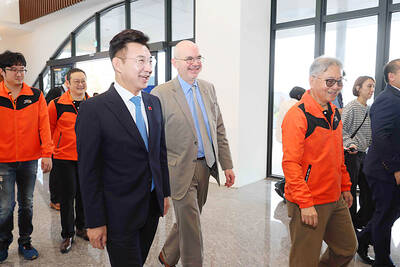
The Legislative Yuan should be able to approve the Taiwan-US tariff agreement this month, providing certainty for businesses, Deputy Legislative Speaker Johnny Chiang (江啟臣) said yesterday.While touring a production line at Victor Taichung Machinery Works yesterday with American Institute in Taiwan (
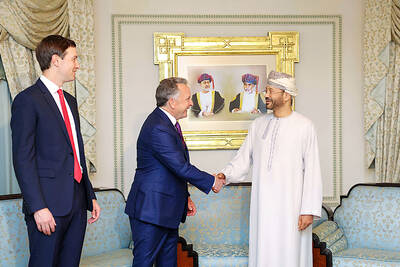
Iran and the US were yesterday holding talks in Oman that were seen as a critical chance to avert any new escalation between the foes, after US President Donald Trump threatened military action.With a US naval group led by an aircraft carrier in Middle Eastern waters, Iran has insisted the talks wou
